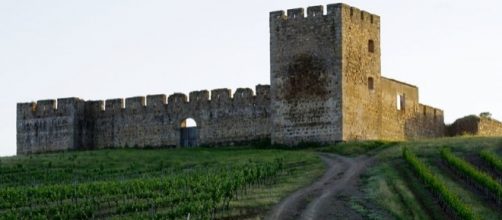Alentejo, in southern Portugal, is becoming the new tourist destination for those who seek good wine, great food, and also a warm climate and enchanting landscapes. The wine is the first and foremost reason behind this recent success, but lots of foreigners - mainly, Americans - are finding that this land "beyond Tagus" (the ancient meaning of the word "Alentejo", in Portuguese) is good not only for the wine, but even for real estate investment. Last year, the New York Times chose it as "one of the 52 places to go in 2015". Find out why.
Alentejo wine region
The wine region is making a steady way to get international recognition, not only for the wine, but also forEnotourism. Unlike Douro, where the grapes of Port are cultivated since the 18th century, wine in Alentejo is recent, dating to the late 80'sand 90's. However, the "terroir" characteristics, along with Portuguese know-how, quickly produced excellent wines.
There are eight sub-regions, taking advantage of local diversity in micro-climate (the Moura region is one of the hottest in Europe) and terrain. Redondo, Borba and Reguengos produce quite smooth and easy to drink red wines. Reguengos de Monsaraz was chosen as the European Wine City 2015.
Spending vacations in Alentejo
The region is way bigger than Algarve, counting for a third of the area of Portugal but the islands, and stretches between the Tagus river and the southerner province. This is a land where you find lots of castles, some of them built by the Moors during the Islamic domination period, andalso the biggest artificial lake in Europe, that of the Alqueva Dam. In the west coast, you find tons of small, unspoilt beaches, ideal for surfing or family vacations, like Porto Covo, Milfontes andArrifana.
Alentejo is a big rural area, sparsely populated. In fact, it's one and a half the size of Wales, but with less than 750.000 inhabitants. Tourists find here peace and the true easy-going lifestyle; this is so true that people from Alentejo are subject to other Portuguese popular anecdotes about being too "slow" and not work-lovers.
Along with its unique gastronomic traditions, gathering still some Islamic influence, the whole region is a paradise for the "Slow Movement".
Investing in Alentejo?
Portugal was already known for a great tourist place. It has a good, warm climate throughout the year, specially in Algarve, long established as a destination for British sun-seekers. It's cheap, and the Euro didn't change that significantly. It has high levels of security and is politically and socially quite stable, which could be somewhat surprising, given the IMF and European Comission financial rescue it suffered over the last few years.
The rise of low-cost air services, like Easyjet and Ryanair, made it even cheaper to get there, and the main cities of Lisbon and Oporto are witnessing a tourist "boom"; Lisbon City Hall has already established official talks with Airbnb to regulate this unexpected success.
It's soon to see if Portuguese "capitals" will become new versions of Barcelona, crowded with tourists. But Alentejo is quite different. It's big, it has a bunch of old, interesting cities (Évora and Elvas and UNESCO's World Heritage), and has a lot of countryside to explore. You won't have the feeling of being in a tourist-oriented spot, rather to feel immersed in genuine Portuguese culture.

